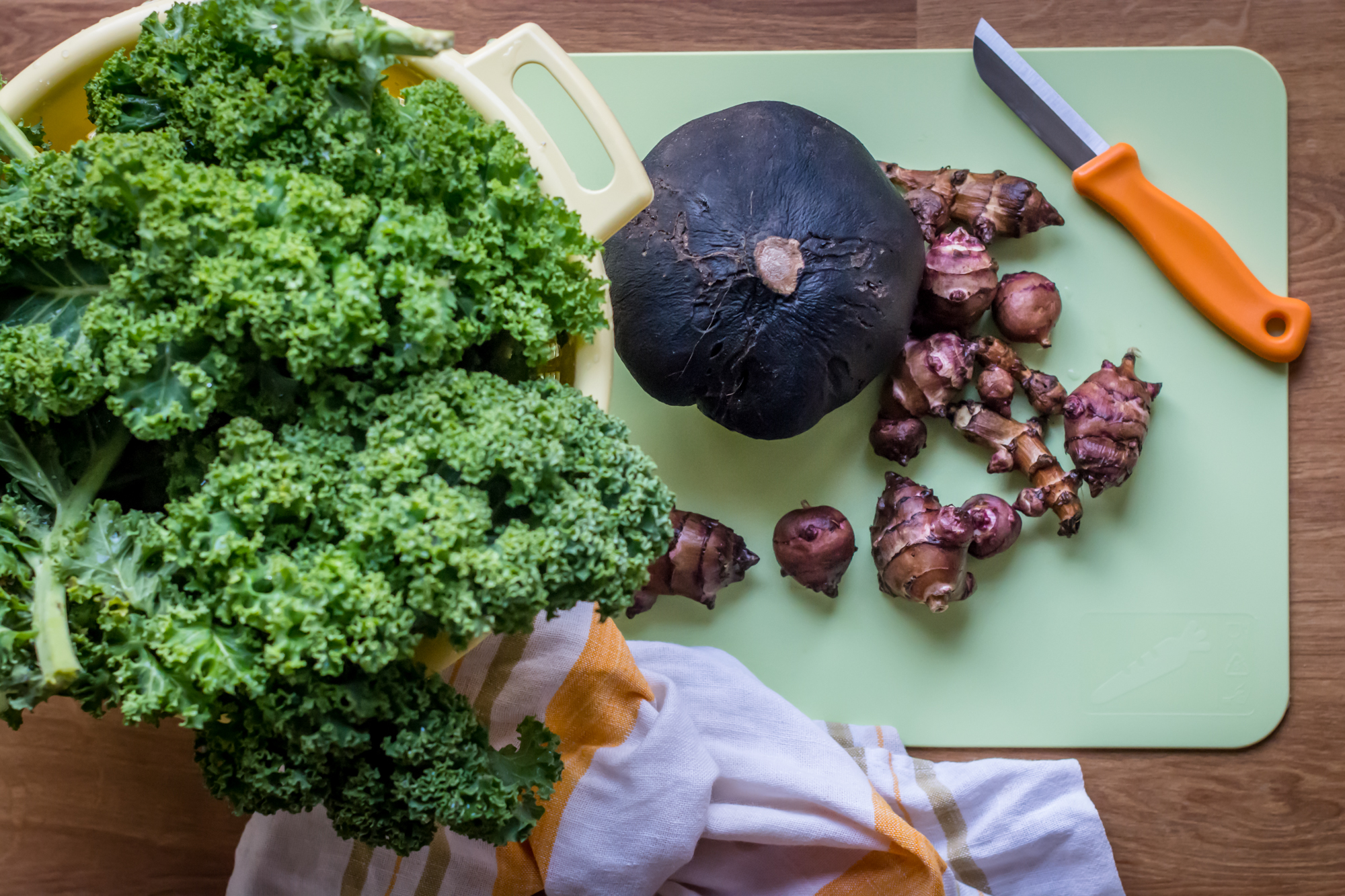Good mood food: OLD POLISH VEGGIES

19
Jan


Jerusalem artichoke found its way into Old Polish cuisine around the 18th century and before World War II it was simply called tubers or earth apples. At that time, it was appreciated for its delicate, slightly nutty taste, and as a plant - for its frost resistance and ease of cultivation. Replaced by potatoes, it disappeared from Polish tables, but not from gardens - lush green fields of Jerusalem artichoke, blooming yellow and actually resembling small sunflowers, can be found in gardens, along railway tracks and in drainage ditches. Now it appears in stores more and more often. CUCA recommends experimenting in the kitchen when root and tuber vegetables dominate in winter. You can make vegetable soup from Jerusalem artichoke tubers, also boil them, stew them, bake and fry them. Sunchokes taste good in salads, too. They are also suitable for fries and chips. Thanks to the presence of inulin, it is recommended for diabetics to lower blood glucose levels. Jerusalem artichoke also regulates blood pressure, strengthens the immune system and helps with chronic fatigue. Its tubers are a rich source of potassium, iron and thiamine.

Another tireless vegetable, resistant to cold and frost, perfect for growing in harsh climates, is kale, and that's why it was once valued. Now we know its health properties and we also value it for them, not forgetting its distinctive taste and beautiful, intense colour. Kale contains large amounts of protein, fibre and vitamins, especially C, K and B groups. It is also a rich source of valuable elements such as magnesium, iron, zinc and phosphorus, mineral salts, including calcium and potassium, and antioxidants. It is an amazing vitamin and nutritional bomb and CUCA recommends finding your favourite way to include it in your daily diet. Maybe in the form of a cocktail? Or oven chips? Or as an addition to tofu or your favourite shakshuka? Even a small amount of kale will provide our body with a lot of good things for the winter months when it needs it the most.
In ancient times, black turnip (black radish) was cultivated in the Mediterranean regions, from where it reached the tables of other European countries. It was then known as a means of adding energy and strength to work. However, in mediaeval times it played an important role in nutrition. In the 19th century, its consumption decreased in favour of, among others, potatoes. Turnips have a slightly spicy taste. It is suitable for salads, perfectly combined with sweet fruit or vegetables. This vegetable can be prepared in various ways: baking, boiling, in the form of puree, soup or stew. Regular consumption has a great impact on health, because black turnip is a source of vitamin PP, C, beta-carotene and B vitamins. It is also intensively used in the cosmetics industry. However, we at CUCA recommend trying its taste in the kitchen first, before we start experimenting with black turnip in... the bathroom. Enjoy!
Black turnip, kale and Jerusalem artichoke are just a few veggies of our list of slightly forgotten, yet tasty and nutritious vegetables. It is undoubtedly worth getting to know others. The long roots of scorzonera will surprise you with its asparagus flavor. Parsnips, the larger and slightly sweeter cousin of parsley, are great as an addition to soups and stews. Swiss chard leaves will be an interesting alternative to spinach. Even turnips, often associated with times of poverty and war, when they were the basis of the diet, can be "disenchanted" with the use of appropriate spices and a bit of inventiveness. It's definitely worth a try!
Did you like our article? Use the buttons below and kindly share with others. Maybe you will discover the taste of old Polish vegetables together? The Good Mood Academy assures that it's a great occasion to meet! 🙂
It only takes a second for you to be the first to know about our news and promotions...
It will be WONDERFUL to have you as part of our CUCA community. Subscribe today and stay updated!
Jako pierwszy dowiedz się o naszych nowościach produktowych oraz inspirujących aktualnościach.
Dane zostaną wykorzystane zgodnie z Polityką Prywatności